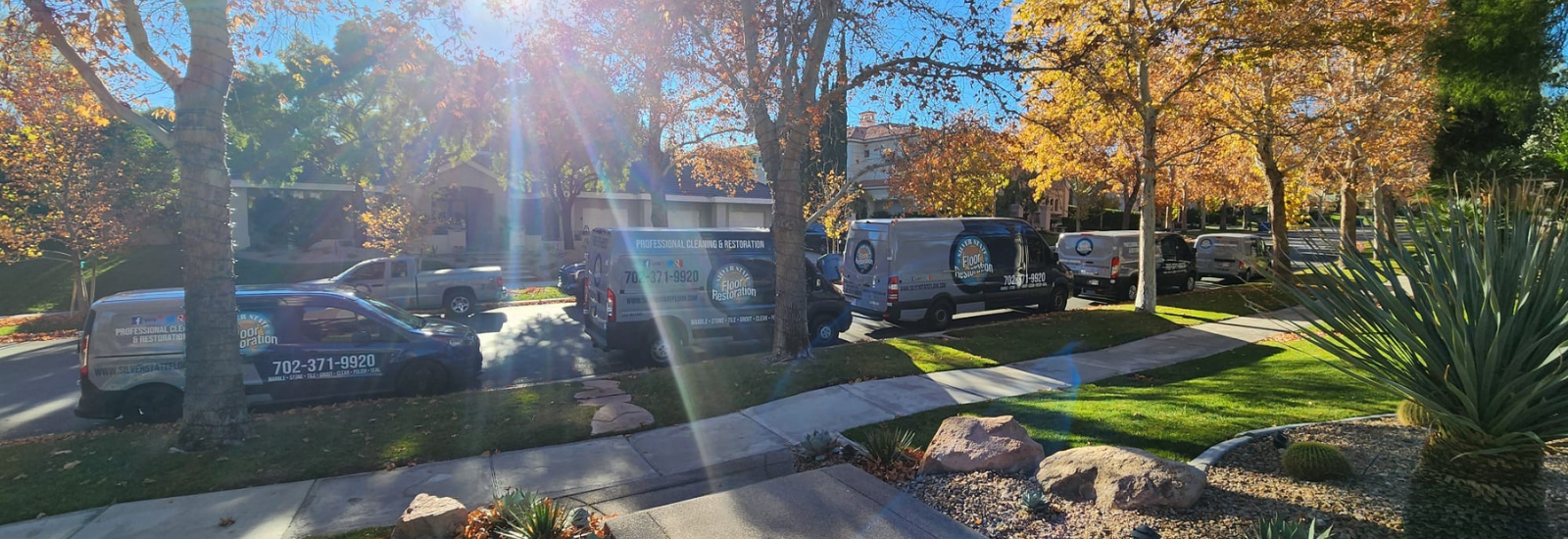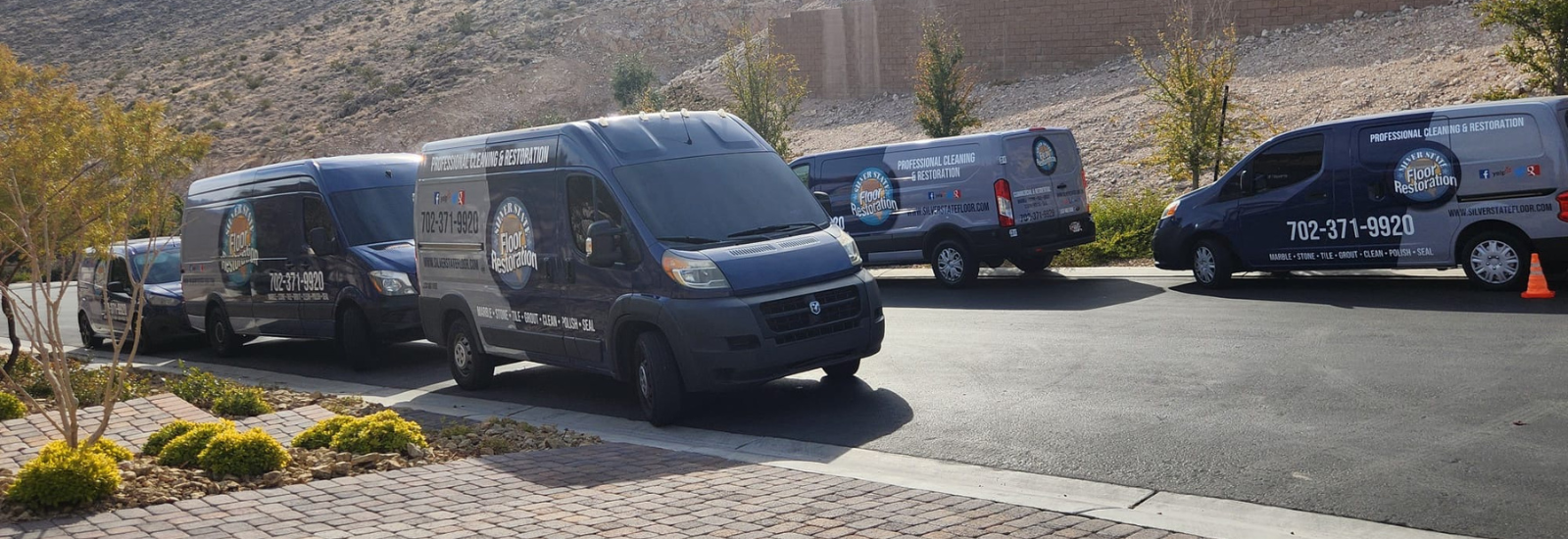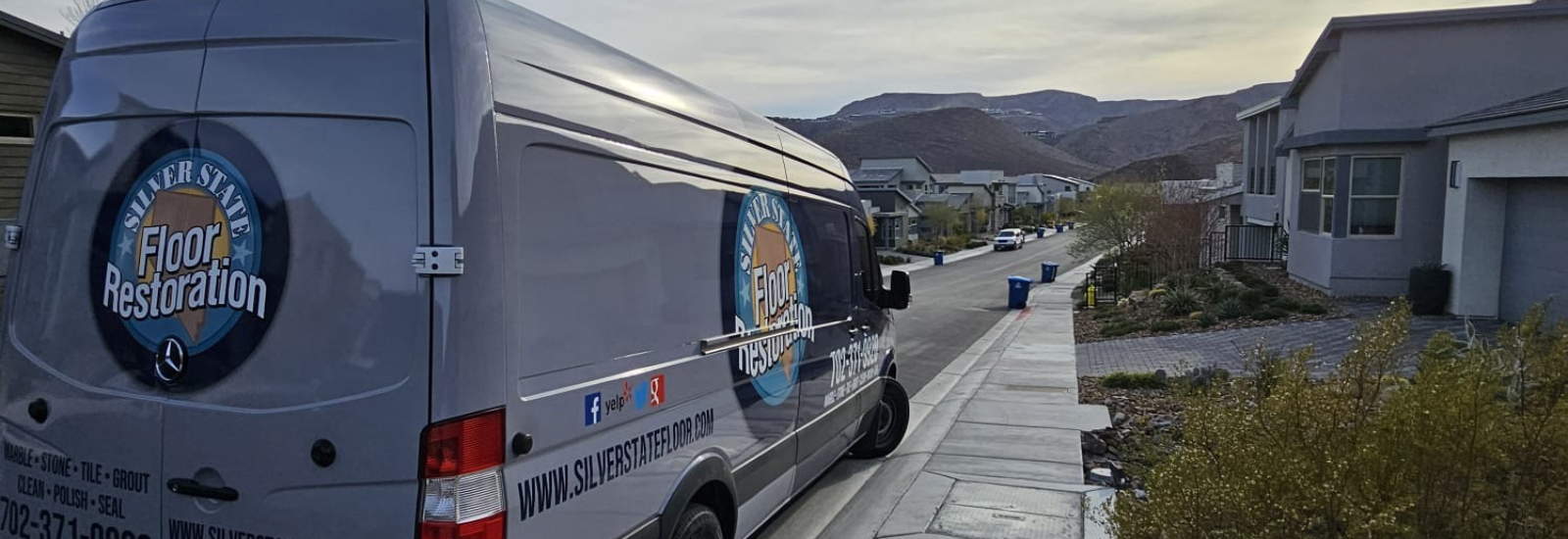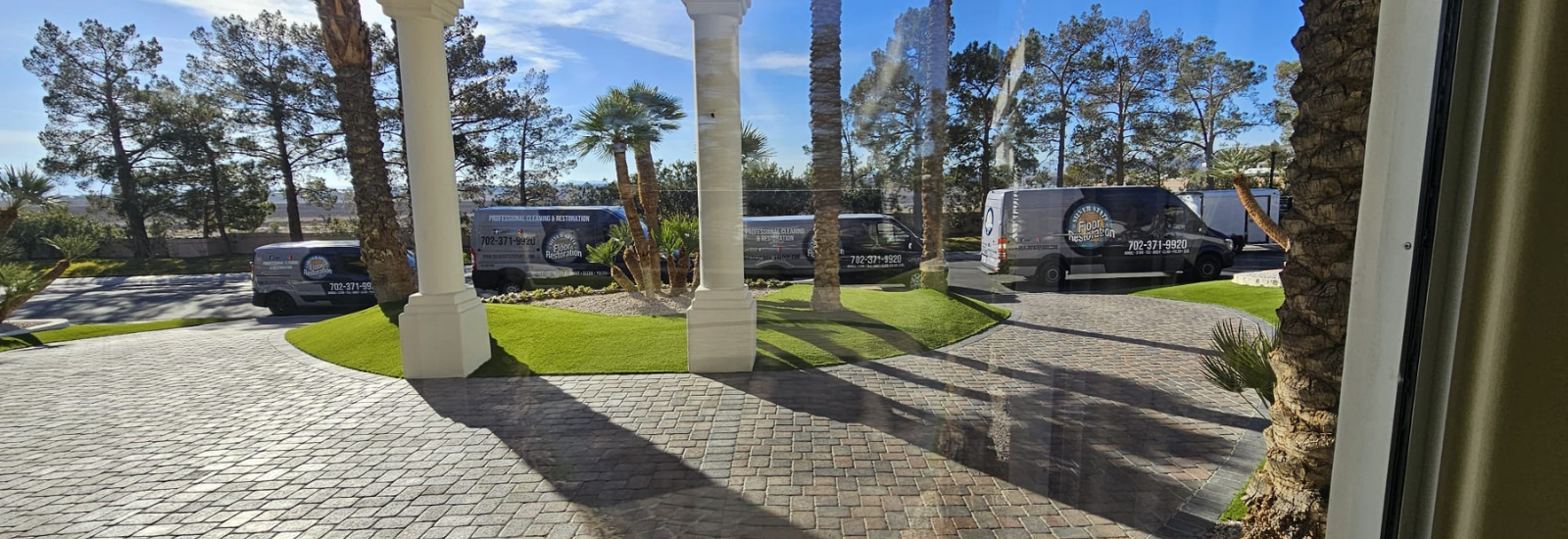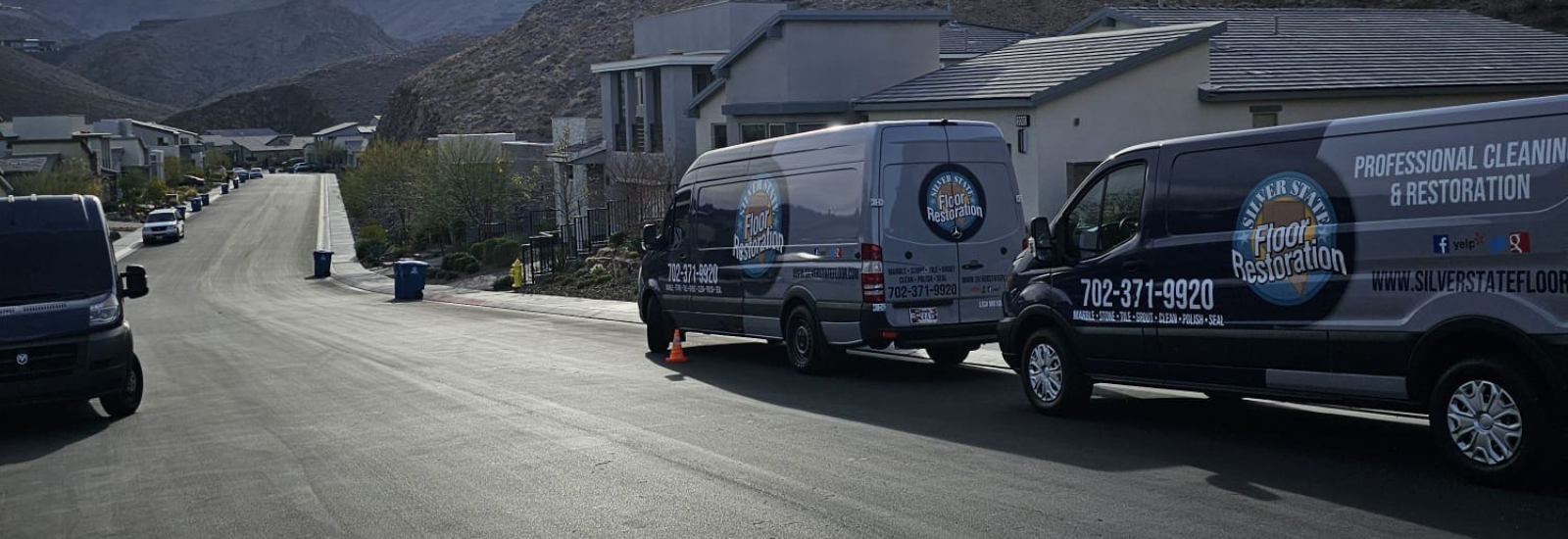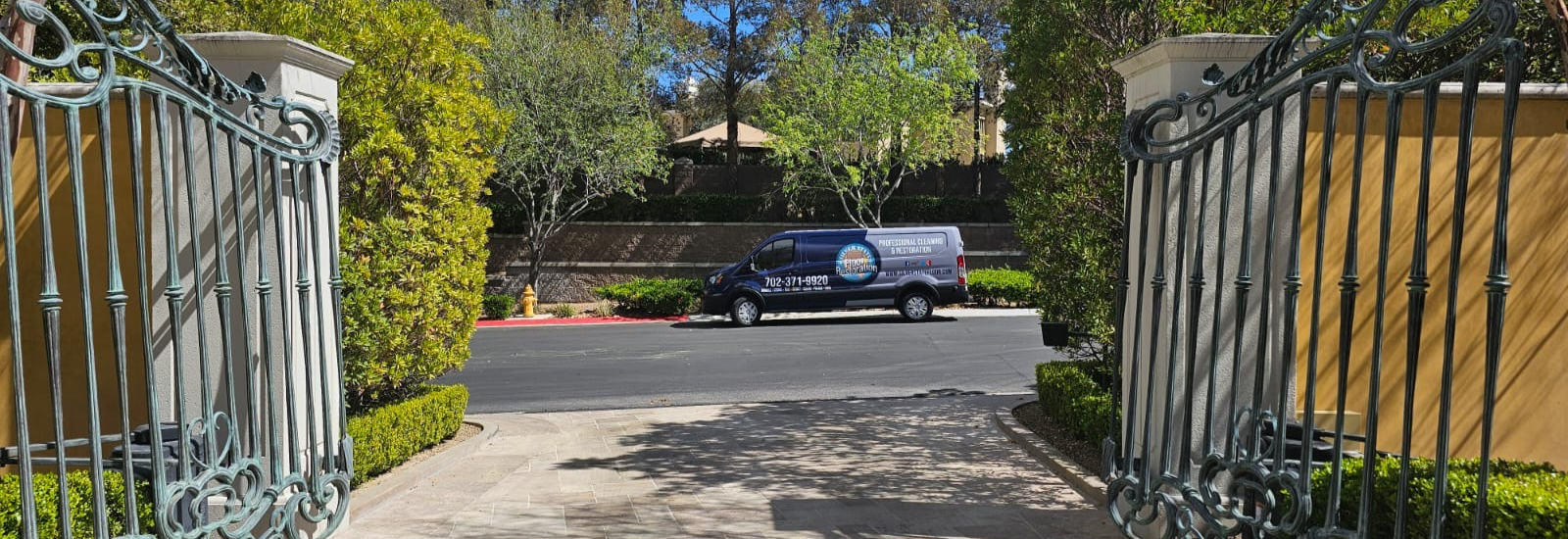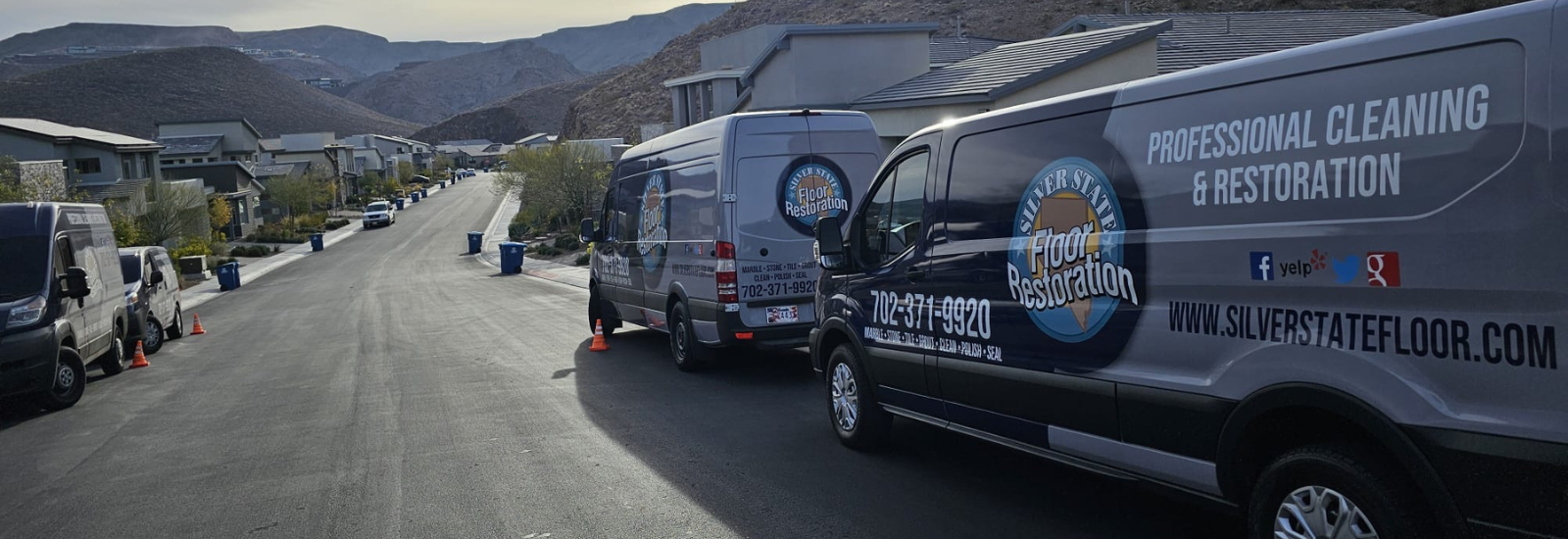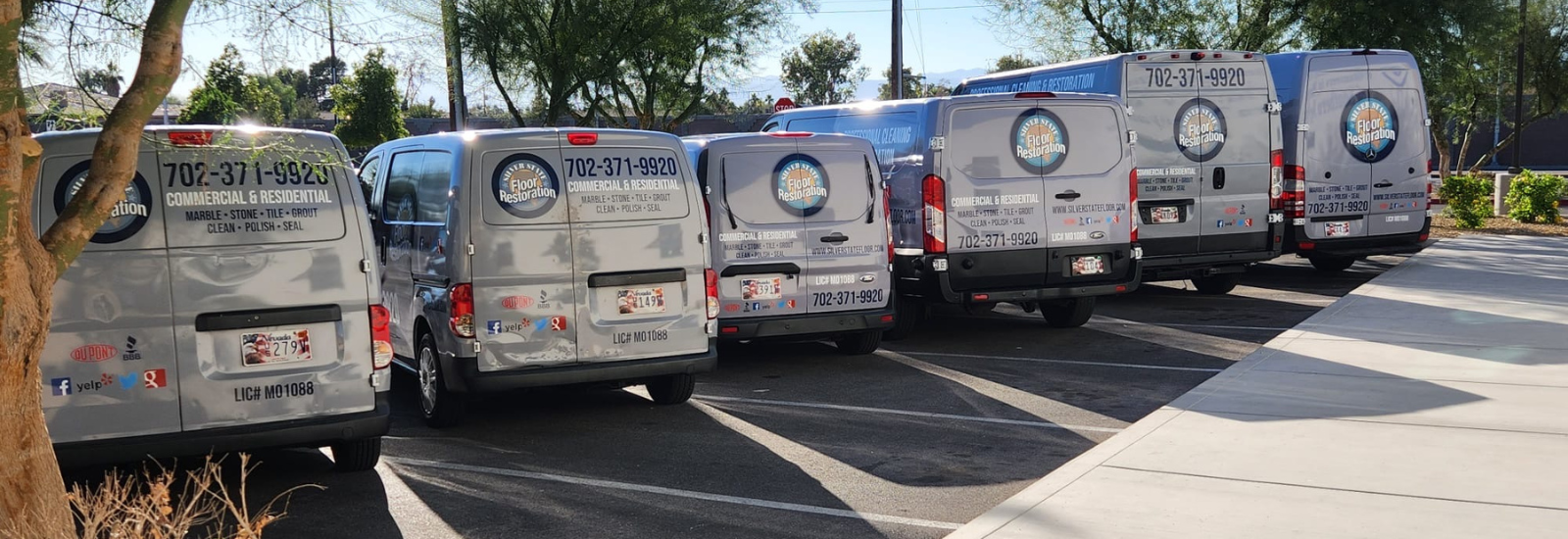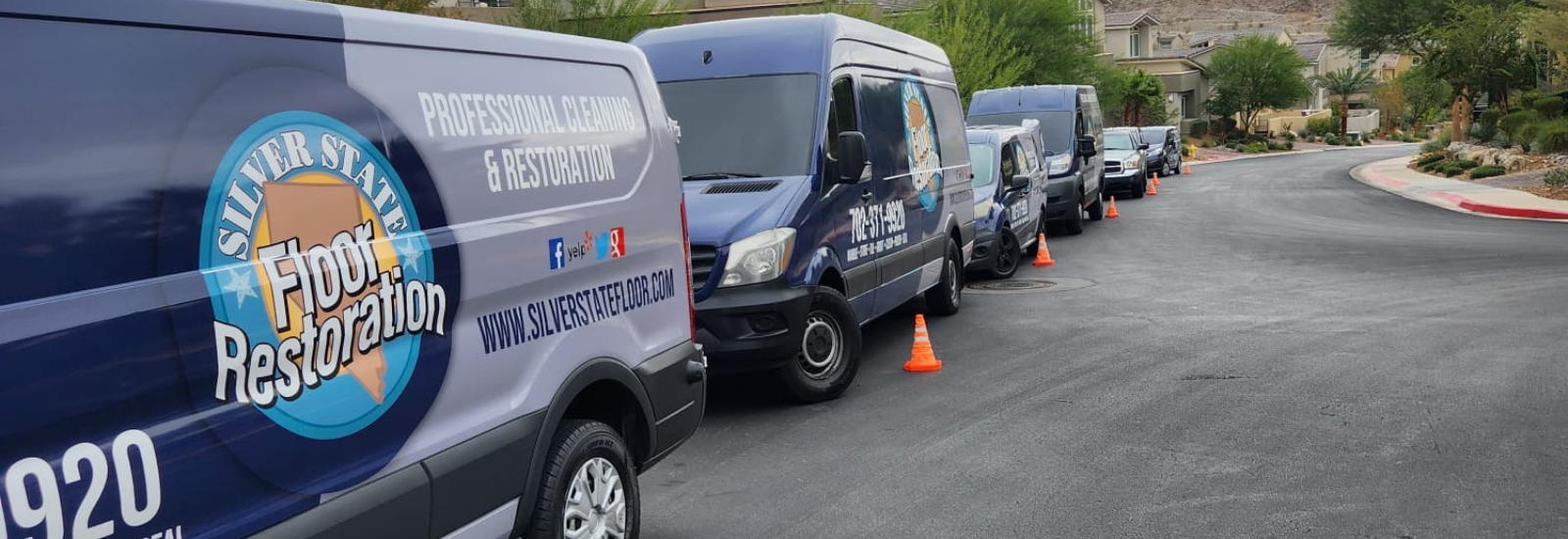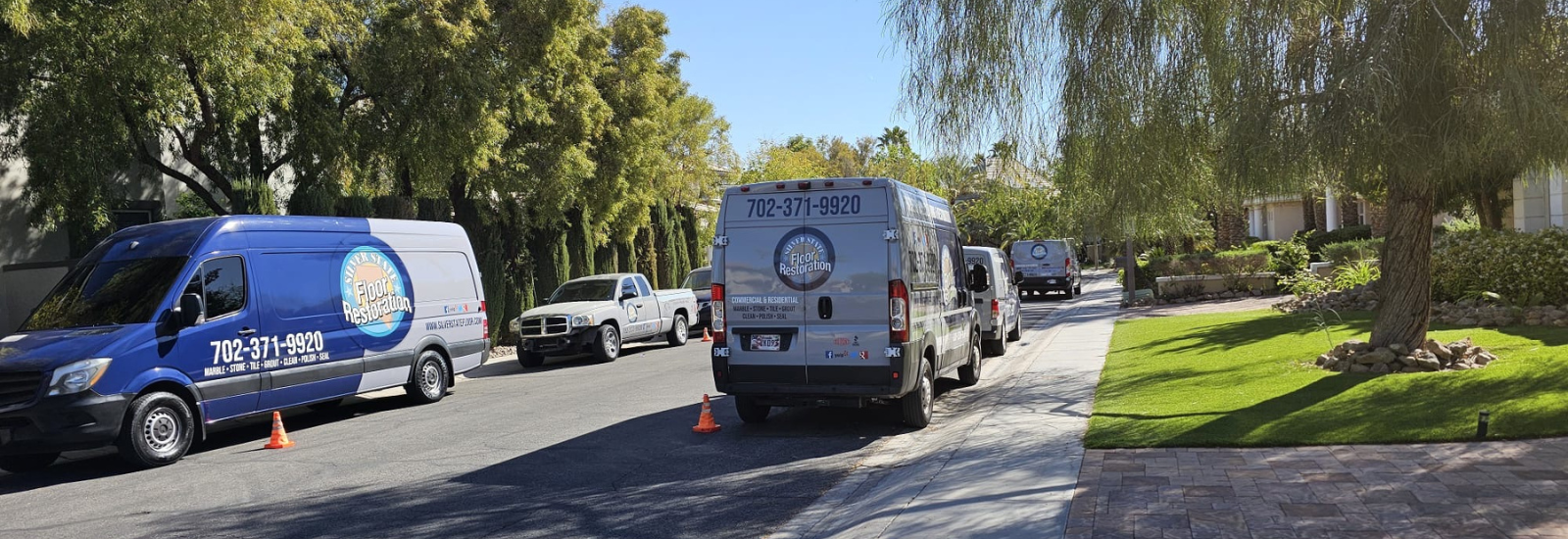Natural stones are prized for their timeless beauty, durability, and distinctive characteristics. However, each type of natural stone comes with its unique set of cleaning challenges. Understanding these challenges is essential for maintaining the elegance and longevity of these surfaces. With this in mind, we at Silver State Floor Restoration would like to discuss the top natural stone types and their unique cleaning challenges.
What is the Best Cleaner to Use on Natural Stone?
Marble: Marble is a luxurious and classic choice known for its veined patterns and polished surface. However, it is susceptible to etching from acidic substances like citrus juices and vinegar. Cleaning marble requires a gentle touch to avoid scratching, and it’s crucial to use pH-neutral or mild, marble-specific cleaners to preserve its natural luster.
Granite: Granite, a popular choice for countertops, is highly durable but not impervious to damage. It is important to avoid abrasive cleaners that can dull its polished finish. Additionally, granite should be sealed regularly to prevent stains, as it is porous and can absorb liquids.
Limestone: Limestone is a sedimentary rock with a softer composition, making it more prone to scratches and etching. Acidic substances can cause noticeable damage, so it’s essential to clean limestone surfaces with a neutral pH cleaner. Sealing is crucial to protect it from both stains and moisture penetration.
Slate: Known for its earthy hues and textured surface, slate is often used in flooring. However, it can be challenging to clean due to its uneven surface, which can trap dirt. Regular sweeping and vacuuming, along with the use of a mild detergent, are recommended. Avoid acidic cleaners that can affect the stone’s color.
Travertine: Travertine, with its distinctive porous appearance, requires special attention during cleaning. Acidic substances can quickly damage its surface, leading to etching and discoloration. It’s essential to use a pH-neutral cleaner and to promptly clean up spills to prevent staining. Regular sealing helps maintain its appearance.
Sandstone: Sandstone, a sedimentary rock composed of sand-sized grains, is susceptible to scratching and can be damaged by harsh chemicals. Regular dusting and sweeping can prevent abrasive particles from scratching its surface. Mild, pH-balanced cleaners are suitable for routine cleaning.
Onyx: Onyx is a strikingly translucent stone often used for decorative purposes. However, it is relatively soft and susceptible to scratching. Cleaning onyx requires a gentle touch, and abrasive cleaners should be avoided. Sealing is essential to protect its surface and enhance its longevity.
Quartzite: Quartzite, a metamorphic rock, combines the beauty of marble with the durability of granite. While it is less porous than some other natural stones, it still requires regular sealing to prevent stains. Cleaning should be done with a mild, pH-balanced cleaner to avoid damage to its surface.
Tile & Grout Cleaning, Sealing & More in Aliante, Centennial, Desert Shores, Eldorado, Enterprise, Green Valley Ranch, Henderson, Lone Mountain Village, North LV, Peccole Ranch, Paradise, Silverado Ranch, Spring Valley, Summerlin, Sunrise Manor, Tuscany Village, Whitney, Winchester & Las Vegas Nevada
In general, maintaining the beauty of natural stone surfaces involves understanding the unique characteristics and challenges associated with each type. Whether it’s the elegance of marble, the durability of granite, or the earthy appeal of slate, a tailored cleaning approach is key to preserving the natural allure of these stones. Regular cleaning, proper sealing, and the use of suitable products are essential steps in ensuring the longevity and aesthetic appeal of natural stone surfaces in any setting. For top-quality natural stone tile, call Silver State Floor Restoration and let us assist you.

